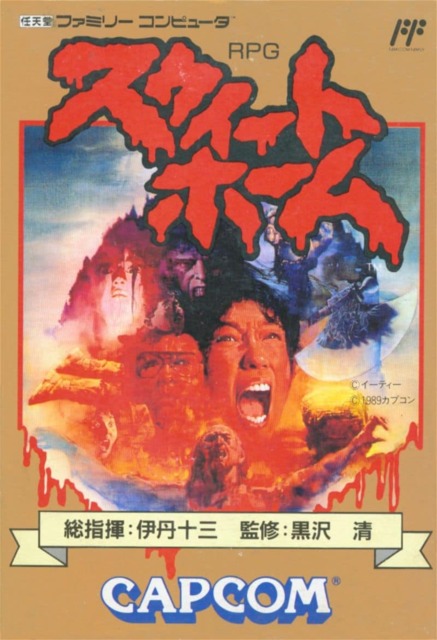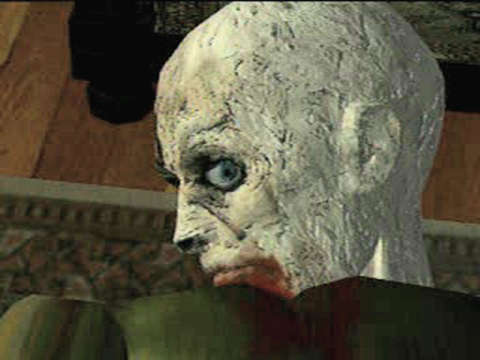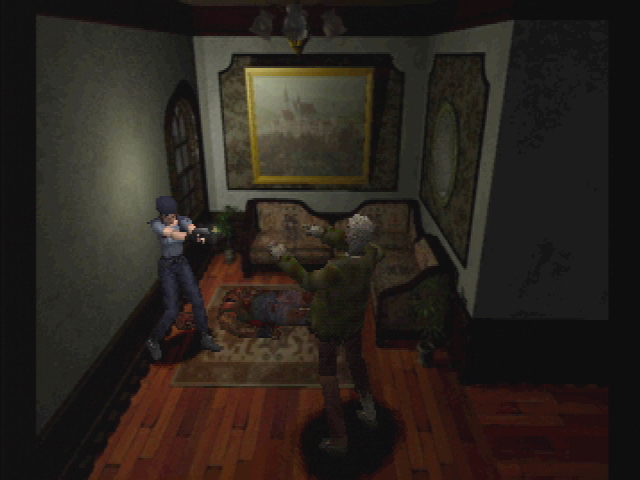It's been 20 years. 20 years since we met Jill Valentine and Chris Redfield, 20 years since we learned the value of typewriter ribbons, 20 years since we came to know the terror of being locked in place as we try to gun down the shambling embodiment of certain death. The Resident Evil franchise has evolved a great deal over the past two decades, but the impact of the original survival horror game can still be felt in everything from Dead Space to The Division.
To honor the anniversary of the game's original release--March 22, 1996--we decided to speak with series creator Shinji Mikami to gain an intimate history of its development. We also reached out to publisher Capcom, who put us in touch with original lead programmer Yasuhiro Ampo. Together, Mikami and Ampo's personal insights paint a fascinating portrait of the inception and creation of one gaming's most enduring franchises.
What's your earliest memory of the project? When and how did you first hear about it?

Shinji Mikami: The meeting that got the ball rolling on Resident Evil was in 1993. We were in Capcom's Osaka development studio and my current boss, Tokuro Fujiwara, called me in to talk to him. He said that he wanted us to make a horror game using systems from Sweet Home, which was a horror game for the Famicom that he had directed. I was actually a big fan of Sweet Home, and he was someone that I really respected, so I was excited about the project from the beginning. But I was a little worried about how well a horror game would really sell. I think that feeling had some influence on RE's development.
So it's true that Resident Evil was originally conceived as an adventure game inspired by Capcom's Sweet Home?
Yasuhiro Ampo: The item management aspect of survival horror is very much similar to how Sweet Home handles it, and I definitely remember being told, "Play Sweet Home!" when I first joined the team.
What made Capcom decide to pursue the project?
Ampo: The concept for Resident Evil came about at the dawn of the PlayStation era, where games were moving from 2D to 3D visuals. I am told that the chief of consumer products at the time had a very strong desire to "successfully create a brand new genre of horror gaming that had never existed before." I don't think that anyone, including the chief himself, ever dreamed that this would be such a long-lasting franchise that's grown to be what it is today.
From a business perspective, did Resident Evil's unique survival horror approach feel like more of a risk or an asset?
Ampo: To be completely honest with you, no one at the time expected the title to be such a success. It didn't get any special treatment, and in fact, got just the opposite. Most of the time, fresh new faces in the company or staff who had extra time on their hands were asked to help with the game's development.
But despite facing such an uphill battle, I think the director's passion and the team's efforts slowly started to come to fruition, and I think that's where we started seeing more and more acceptance of the game within the company.
No one at the time expected the title to be such a success. It didn't get any special treatment, and in fact, got just the opposite.
Yasuhiro Ampo
At its largest, how big was the team that worked on Resident Evil? How long did development actually last?
Ampo: Towards the end of development of the original Resident Evil, we had upwards of 80 people on the team. The development timeframe was approximately three years.
At the time, there was actually no such thing as a QA-specific company, nor was there a QA-focused department. Debug was performed by members of the development team while wearing headphones, and people from other teams were recruited to help out with this as well.
"Survival horror" games as we know them now didn't really exist before Resident Evil. Did you sense you were pioneering a whole new genre?

Mikami: Well horror movies were obviously around, and there was also a lot of pure horror stuff in the gaming world at the time--when I mention that I was worried that the game wouldn't sell, I mean that it felt like just making a normal game wouldn't cut it.
So I decided to try to think freely, without being tied down by traditional genres. I also thought that the sense of despair that you generally get in horror wasn't really that well-suited to games. So that was the jumping-off point. Not of a new genre, but of the creation of a game that wasn't tied down by traditional genres.
At one point during development, I thought about how exhilarating it was to take down a zombie and about how that was a feeling that you just couldn't get from watching a movie. That was the first time that I really sensed that we had a new genre on our hands.
Much of Resident Evil's design arose from technical workarounds. What was it like working within these constraints?
Ampo: We had originally attempted to have everything appear in full polygons. However, it became very clear early on that this wouldn't be possible given the limitation of the hardware at the time. The director's priority was making sure the zombies' visuals conveyed a sense of fear, so the decision was made to use polygons for them. The backgrounds were then swapped out to pre-rendered visuals, and this was when we decided to use the static camera as well.
The fixed camera system might actually be Resident Evil's most distinctive feature. Where did this approach come from? Were other options created or considered?
Mikami: At first, we were developing RE as a fully 3D game. But the graphics level that we were going for didn't get along so well with the original PlayStation's specs. It was looking like, if we didn't make a change somewhere, the project could end up on indefinite hold.

That was when we took a look at Alone in the Dark. The environments were pre-rendered, and the characters and such were in real-time 3D. It seemed like that approach would allow us to create the game that we wanted, but there were control issues, and the changed perspective had an effect on immersion, making the player feel a bit more detached. It took a little bit of time to get my feelings in order and make the call to change it.
What inspired the team to include multiple endings? How were these endings decided upon?
Ampo: The director had placed a strong emphasis on having the player "live their own storyline through their experiences," rather than showcasing a pre-packaged storyline. The multiple endings and split pathways throughout the title were created in correspondence to this vision.
Were there any expectations or collective feelings regarding the game's international release?
Ampo: The director's influences came heavily from horror flicks and zombie movies, so from that standpoint, I think the contents naturally veered towards an international perspective. However, all of the development staff was Japanese, so we inevitably ended up with poor localization that I hear hindered the realism and immersion of the title. I think that factor was also part of the reason we decided to later remake the game.
During the time we were making it, my personal feeling was that Resident Evil was not a game that should be made into a series.
Shinji Mikami
What has stuck with you most from your time developing Resident Evil?
Ampo: From a personal standpoint, I'm really glad that things turned out favorably. The title was created by a director and team that had such a strong desire and passion to create something they believed in, and it's amazing to think that it resulted in popularizing a brand new genre of gaming.
I think the timing was also just right. Compared to modern day, I think it was relatively easier attempting to create something new back in the PlayStation era, especially because development teams were so much smaller. Now that I think about it, I think the development environment back in the day is far more comparable to the indie scene that you see nowadays.
Mikami: During the time when we were making it, my personal feeling was that Resident Evil was not a game that should be made into a series. This is because horror tends to have strong patterns that are easy to get used to, meaning they're easy to get tired of. I never thought that the game would become such a huge hit.
I can't help thinking that, if Resident Evil hadn't sold so well, maybe I could have spent that period of my 30s doing creative work as a studio director instead of working as a producer. Although I still feel like a very lucky man to be able to have those kinds of worries.

